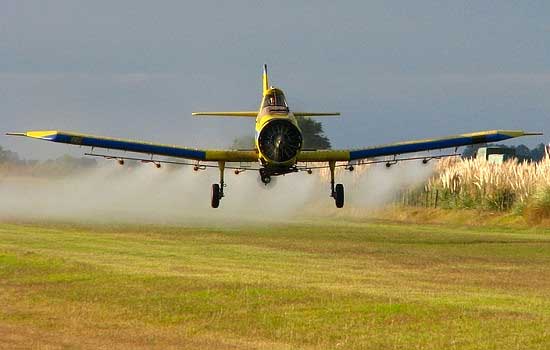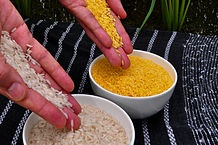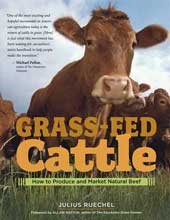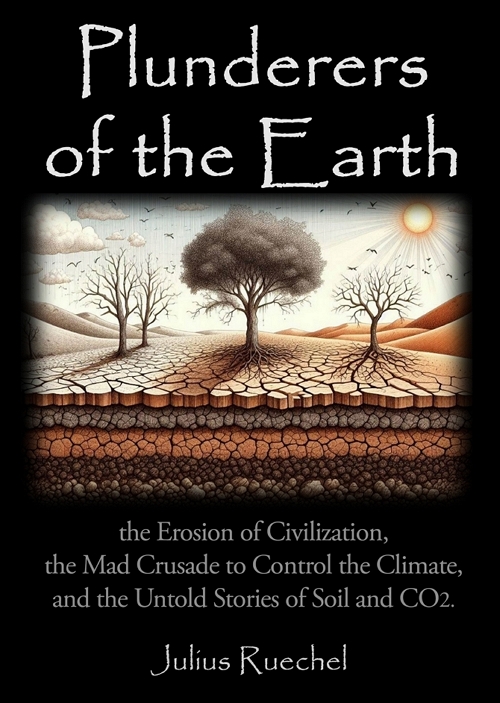Who do we trust?
Assessing the food safety of common agricultural products

Image Credit: Santiago Nicolau
Reader question: "I am concerned about the food safety of using _XYZ_ agricultural product (i.e. parasite control, vaccine, antibiotic, fertilizer, pesticide etc.) that my vet, soil lab, animal nutritionist, or agricultural extension agent recommends. Is this product safe…?"
In this article I am going to address some of the food safety issues that farmers wrestle with every day as they choose the agricultural products to include or exclude in their farm management plan. This article arose in response to the large number of farmers and beef consumers who have contacted me through this website to ask about the safety of various products used in conventional and/or organic beef production.
In theory, the answer should be simple. Ask your supplier or vet. If you have any concerns, get a second opinion from a different supplier or different vet. Each product should come with clear instructions about withdrawal periods and other usage instructions. Follow these carefully.
The end.
But that's NOT the end. It's just the beginning...
Unfortunately, it's not that simple...
The volume of emails I receive asking about the food safety of various agricultural products reveals the deep skepticism that many people have about the use and safety of certain agricultural products.
Many products that the agricultural industry considers 'safe' are characterized as 'dangerous' 'toxic', or 'poisonous' by spokespeople within the organic industry or by media articles written from an 'organic' or 'environmentalist' viewpoint.
Who's right? Who do we trust?
To Trust Or Not To Trust - That Is The Question!

In addition to the rigorous licensing process that each agricultural product (i.e. pesticide, fertilizer, herbicide, vaccine, antibiotic, etc.) has to go through before it is approved for use, each product also has mandatory withdrawal periods before the affected food product or treated animal is considered safe to be reintroduced into the human food supply chain.
That means each product has to follow very clear rules restricting them for specific uses in order to prevent contamination of the food supply.
The underlying concern that many of these emails express is that some residue from these products will nevertheless still be present even if the product is only used strictly as intended and even if the withdrawal periods are followed.
In other words, can we trust that the rules and withdrawal periods really do ensure our food safety? Are they really sufficient to prevent contamination of the food supply?
Considering the strict scientific testing and rigorous laboratory analysis that goes into measuring residue levels to determine mandatory withdrawal periods, they should be safe when used as intended and when the mandatory withdrawal periods are followed.
So unless you have the scientific analysis skills yourself to test these products yourself, you have a decision to make...
If, like the majority of people, you do not have extensive knowledge about biochemistry and are not in a qualified position to evaluate the long-term food safety of these products yourself, you can choose to trust the regulatory process and the qualified government scientists that are tasked with determining safety levels and withdrawal periods.
Or, you can choose not to trust that process. This implies that you have identified a legitimate reason to believe that either the science is flawed or that the subsequent regulatory process (and the lobbying that surrounds the drafting of these regulations) has been compromised through manipulation by special interest groups.
Though some people tend to either blindly trust or categorically see everything through the lens of a conspiracy theory, most of us lie somewhere in between.
Since the issues at stake and the science involved are complex - developing an informed and objective opinion takes a bit of work.
Developing your own informed opinion... hot emotions vs cold probabilities
Anecdotes supporting or condemning new technologies are easy to find. Anecdotes make for great politics (and great news articles) on both side of the debate, but rarely represent reality.
But these anecdotes are so 'catchy,' so easy to remember compared to the complex science involved, and we are bombarded with news stories all day long that reinforce these anecdotes at the expense of any real hard scientific methodology that in our minds the anecdotes and the emotions that they trigger become fused with the issues at stake. It's hard to think objectively about the issues without our minds serving up a cocktail of emotionally-charged anecdotes that taint our objectivity.
Read the following list of words: antibiotic, vaccine, GMO, herbicide, pesticide, Round-Up, fertilizer.
Until I put those words into a sentence they are simply words, divorced from any conversation that should trigger a feeling or opinion. Since there are millions of possible topics attached to these words, I could just as easily construct a positive, a negative or a completely neutral sentence with any one of them. But I'll bet you had some clear emotions and anecdotal imagery that came to mind as you them, with either a positive or negative opinion not far behind. Your opinions and feelings didn't even wait for me to create a sentence with them. The anecdotes have fused with the words. It's impossible to have perspective while your emotions are running high.
So, start by tuning out the drumbeat of alarmist anecdotes that are so readily available in the media, on internet forums, and on the internet.
Dangerous Anecdotes

In 1633, Galileo Galilei - also known as the Father of Modern Science was "gravely suspect of heresy" and sentenced to indefinite imprisonment. Why?
Simply because his mathematical calculations and his astronomical observations made with his telescope contradicted the 'obvious' anecdotal 'proof' provided by countless seemingly-reliable human eyes. But Galileo was right - it is the Earth that revolves around the Sun, not the other way around.
Next time you hear someone 'proving a point' with 'irrefutable anecdotal evidence' do Galileo the honor and resist your urge to form an opinion until after you've done a more thorough review of the science behind issues.
Instead, commit to doing a bit of your own research about both the biochemistry at work and the regulatory process that is required before these products are allowed on the market.
At times there are valid reasons to be skeptical. But also recognize that skepticism is just as often simply the result of being confronted by something unfamiliar, complex, or outside of our sphere of expertise.
Doubt is a natural and healthy response when confronted by something new or unfamiliar. But rather than letting doubt debilitate you, use it as motivation to act objectively, to do your own homework, and to take responsibility for informing yourself about the topic.
Informing yourself means setting aside preconceived beliefs and tuning out emotional anecdotes.
Informing yourself means learning about the science involved AND learning about the regulatory process that the product has to go through before it can be approved for use in agricultural food production.
Informing yourself also means learning to view things in terms of probabilities.
Thinking in Probabilities
Imagine a news report highlighting that a new beneficial technology has a 1 in 10,000 chance of a negative side affect, along with some gory images to illustrate that risk. One look at those images and our instinct is to reject that product outright.
But a 1 in 10,000 chance of a modest negative outcome means there is a 9,999 in 10,000 chance of a positive outcome! Surely those odds warrant a second look!
Probabilities matter, yet often risks and benefits are portrayed side-by-side as though they each carried equal weight - 50/50 - like flipping a coin. We logically know that a 1/10,000 chance is not the same as a 50/50 chance. But unless we have some experience with the issue at hand to put that risk into perspective, as soon as we become aware of a new risk, we react emotionally as though that risk is a 50/50 gamble!
Getting struck by lightning is a real risk the next time you exit your house, but it is hardly on the same order of likelihood as not being hit by lightning. Experience has taught us that this infinitesimally small risk is not worth worrying about because we've left our house so many times without getting hit by lightning. And when we read a news story about someone else getting hit by lightning, our own experiences allow us to dismiss the story without altering our perception of risk the next time we leave the house.
But when we hear about a new or unfamiliar risk with which we have no experience (such as a risk stemming from the use of a newly engineered agricultural product), because we have zero personal experience with that risk we lose that objectivity. We see the risk and want to run the other way, even if its probabilities are just as small, or smaller, than getting hit by lightning the next time we leave the house!
Understanding the probabilities surrounding the risks is just as important as understanding the risks themselves.
Risks and Benefits
We also need to remember that we need to weigh both the risks AND the benefits.
When discussing new agricultural products, activists and the media love to zero in on the risks, completely divorced from any nuanced discussion of risks versus benefits. Discussing risks versus benefits doesn't sell newspapers or work well for fund-raising campaigns. What motivates people and sells newspapers is stories about worst possible scenarios illustrated with gory pictures and a dose of conspiracy.
In reality, there is almost nothing we do that is completely risk-free. That includes getting up out of bed and crossing the street. But we cheerfully accept most risks because of the benefits that accompany the taking of risks.
Until we encounter a new and unfamiliar risk... Then we behave like any risk at all, regardless of benefits is unacceptable. All we focus on is the risk.
Assessing something in terms of only its risks is simply not a fair assessment. There will always be some statistical outlier that illustrates the potential risk of a certain product, however small that risk is.
To be thorough, you must also weigh the risks against the benefits of using that product. And compare that to the risks versus benefits of using an alternative product, or no product at all.
Life is not a zero-sum game where we don't play if there is even the remotest chance of encountering a negative outcome when we face a risk. Every choice we make, from the moment we get out of bed in the morning until we crawl back into bed at night, is a constant balancing act between assessing the probabilities of a positive versus a negative outcome for every choice, every action, and every risk that we take (the risk-reward equation).
Our assessment of agricultural products and new technologies used in the food industry should be no different. No discussion of their risks is complete without also looking at their benefits, and understanding the probabilities of each. Nothing should be categorically condemned simply on the basis that a risk exists, or condemned on the basis of a few emotionally-charged anecdotes divorced from any systematic assessment of the issue at hand.
Golden Rice:
A perfect example of why it is important to:
- evaluate products on a case-by-case basis,
- avoid highly-emotional anecdotal arguments,
- objectively weigh risks vs benefits (with probabilities assigned to each),
- and encourage objective scientific analysis
Consider the case of "Golden Rice," a new rice variety which has the potential to save millions of lives and dramatically improve the lives of millions more.

Image Credit: International Rice Research Institute

Image Credit: International Rice Research Institute
I've purposely picked this example because of two words which are sure to trigger an emotional response, yet highlight why it is so vital to objectively assess risks and benefits on a case-by-case basis, rather than condemning something on principle... And those two little words are... 'genetically-modified.'
"Golden Rice" is a genetically-modified rice variety which is high in beta-carotene (a pre-cursor of Vitamin A) in the edible parts of the rice. This is in contrast to regular rice which is not a source of Vitamin A.
GM-crop opponents oppose it on principle and are quick to drag out highly-emotional anecdotes to highlight hypothetical food safety and ecological risks of licensing any and all GM crops, including Golden Rice.
But reality is stark - and not hypothetical at all. Vitamin A deficiencies kill 670,000 children under the age of 5 every single year while blinding another 250,000 to 500,000 children annually, predominantly among the world's poorest populations which are overwhelmingly living on a rice-rich diet and do not have the means to buy loads of carrots or spinach or pop down to the health food store to buy Vitamin A capsules.
Golden Rice was specifically developed to address this huge unfolding tragedy by putting Vitamin A into the food that people already eat - such a simple and tidy solution! And it was developed under a free license - there is no company that can monopolize its patent. Any farmer can reuse or sell their own seed.
This rice has the potential to improve the health of millions on a scale that is comparable to the introduction of iodized salt to combat iodine deficiencies, the discovery of penicillin, the development of the polio vaccine, and the chlorination of drinking water.
Assessing the risk of any new agricultural product, like the genetically-modified Golden Rice, should not happen in isolation without assessing the benefits and realistic alternatives.
Regardless of where you stand on genetically-modified crops, opposing scientific research about Golden Rice and blocking its licensing if it meets the safety standards of other new agricultural crops seems on the verge of criminal, yet its opponents consistently only highlight one side of the argument through emotionally-charged anecdotes and frivolous lawsuits, while refusing to engage in a meaningful discussion of weighing risks versus benefits. The most extreme opponents even go as far as trespassing and destroying field trials, thus impeding the collection of objective scientific data upon which to evaluate its potential.
So next time you evaluate the food safety of a new agricultural product for your farm, remember the case of Golden Rice and evaluate it on a case-by-case basis by taking an objective look at risks AND benefits, evaluating the PROBABILITIES of each, and orienting yourself according to hard scientific data.
Who to talk to to educate yourself, BEFORE forming an unbiased opinion...
To build up a solid understanding of the science at work in any agricultural product that you are assessing, speak to the experts in their fields (not to the lobbyists, activists, or media promoters). You don't need to become a food safety expert yourself, you simply need to build up a familiarity and a comfort level with the topic so you can assess it objectively.
Consider phoning the manufacturer as well as the government agency responsible for regulating the product and talk to their scientists, not their PR people. Talk to your local agricultural extension agency, your local pharmacist, the biochemistry professor at your nearest university, or your local veterinarian.
And remember that you are approaching these people, not for their opinion, but rather to get them to share some of their knowledge about the topic and teach you about the science involved so you can make up your own opinion LATER once you become more comfortable with the subject matter.
Make it your mission to learn how the product works, what the chemical agents are, how the testing process works to determine the food safety withdrawal periods, and how the independent tests and analyses are conducted before the products are licensed for market.
Properly informing yourself takes a bit of work - but at least you will be operating from a position of knowledge going forward so you can make your own decisions in the future rather than being swayed by the emotionally-charged rhetoric used by food safety activists on either side of the fence.
And once you come to an informed decision (regardless of which way you decide), turn off the news, stop worrying about it and go live your life, because worrying night and day about food safety and filling your mind with a constant stream of alarmist anecdotes from the media has the potential to do you the greatest harm of all.
Further Reading:
(Disclosure: I get commissions for purchases made using Amazon links in my post.)
To learn more about how to overcome the biases in our minds when we evaluate risks, I highly recommend the book Thinking, Fast and Slow#CommissionsEarned, by Nobel Prize winner Daniel Kahneman.
I also recommend reading one of my all-time favorite books, The Rational Optimist: How Prosperity Evolves#CommissionsEarned, by Matt Ridley, which does a fantastic job of demystifying how innovation works and explores the many often-overlooked ways that a wide range of new technologies have benefited us despite the bad rap that these technologies tend to get in the media.



